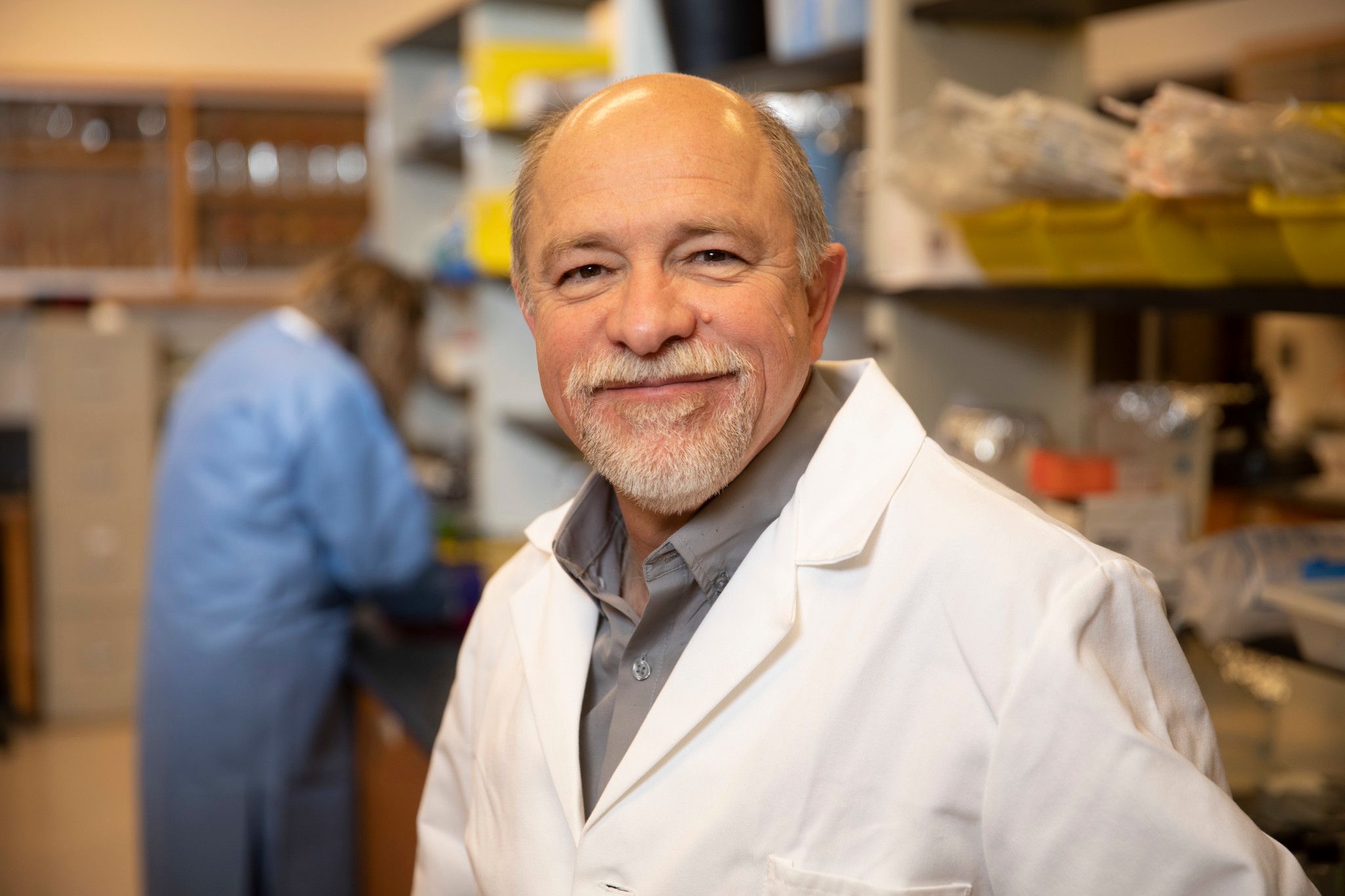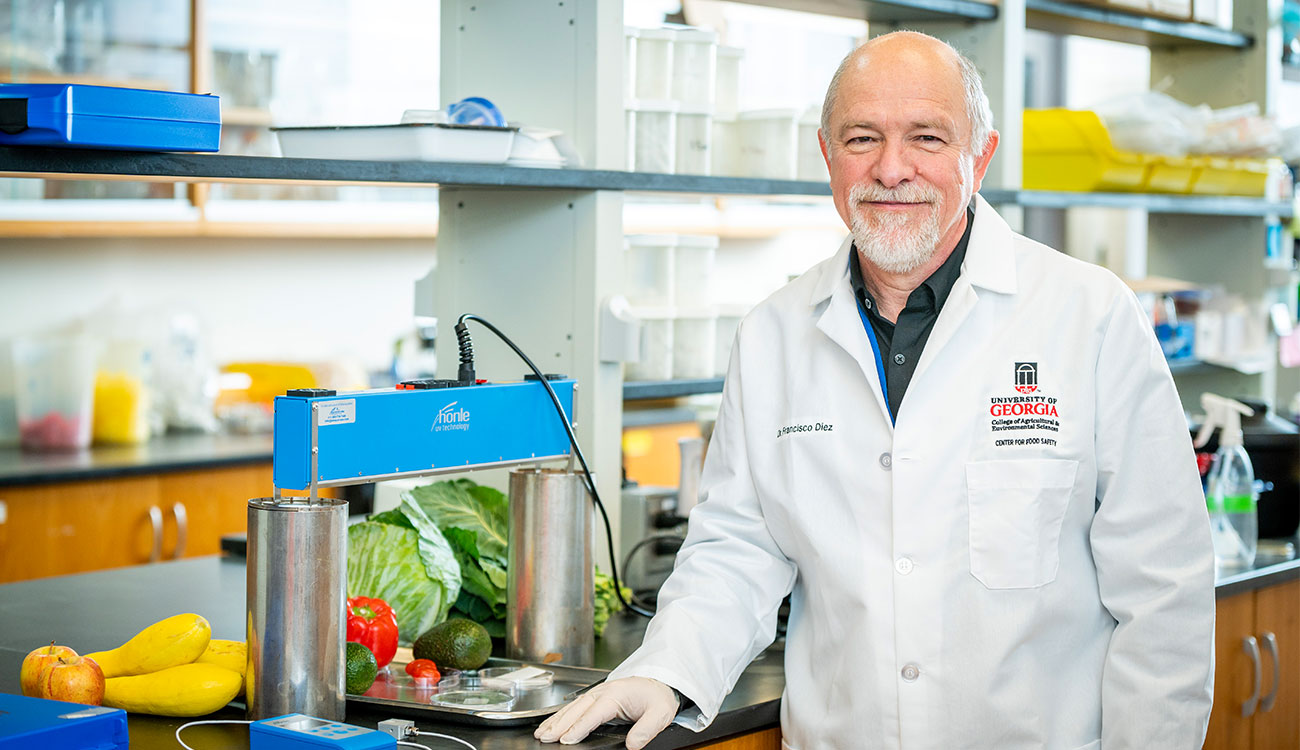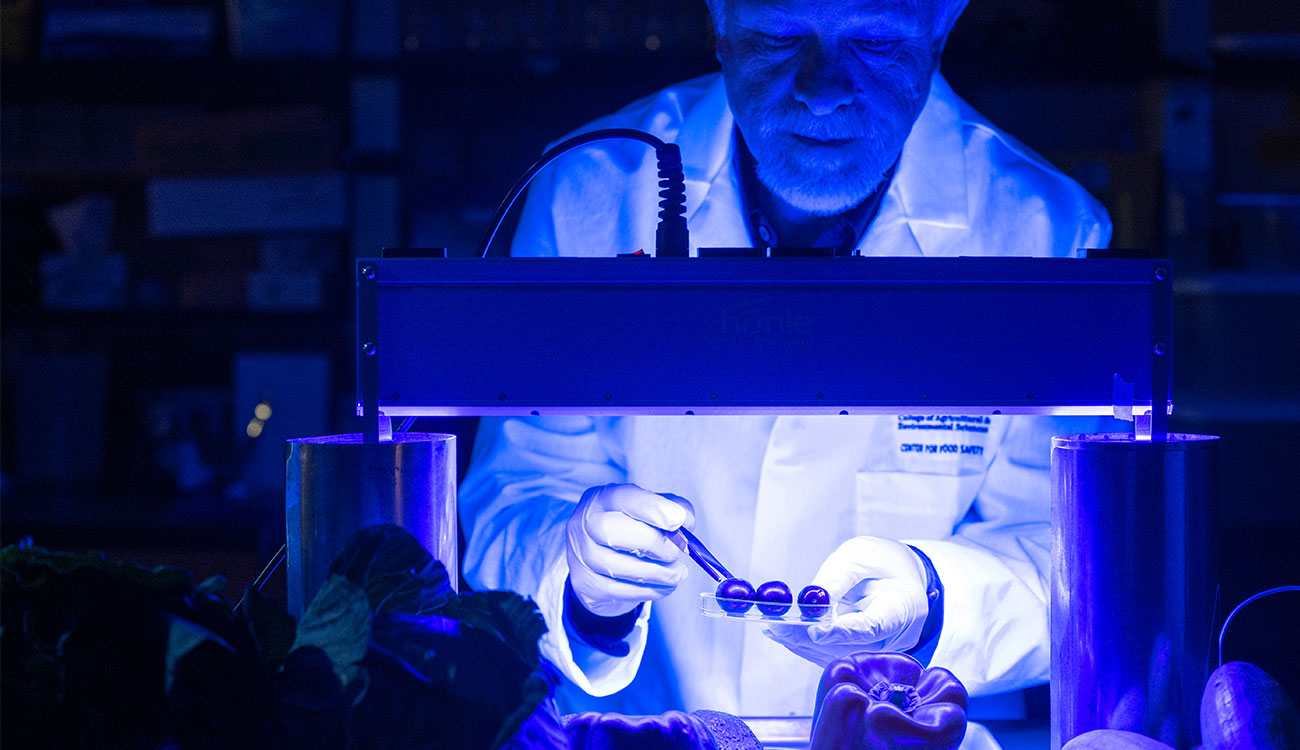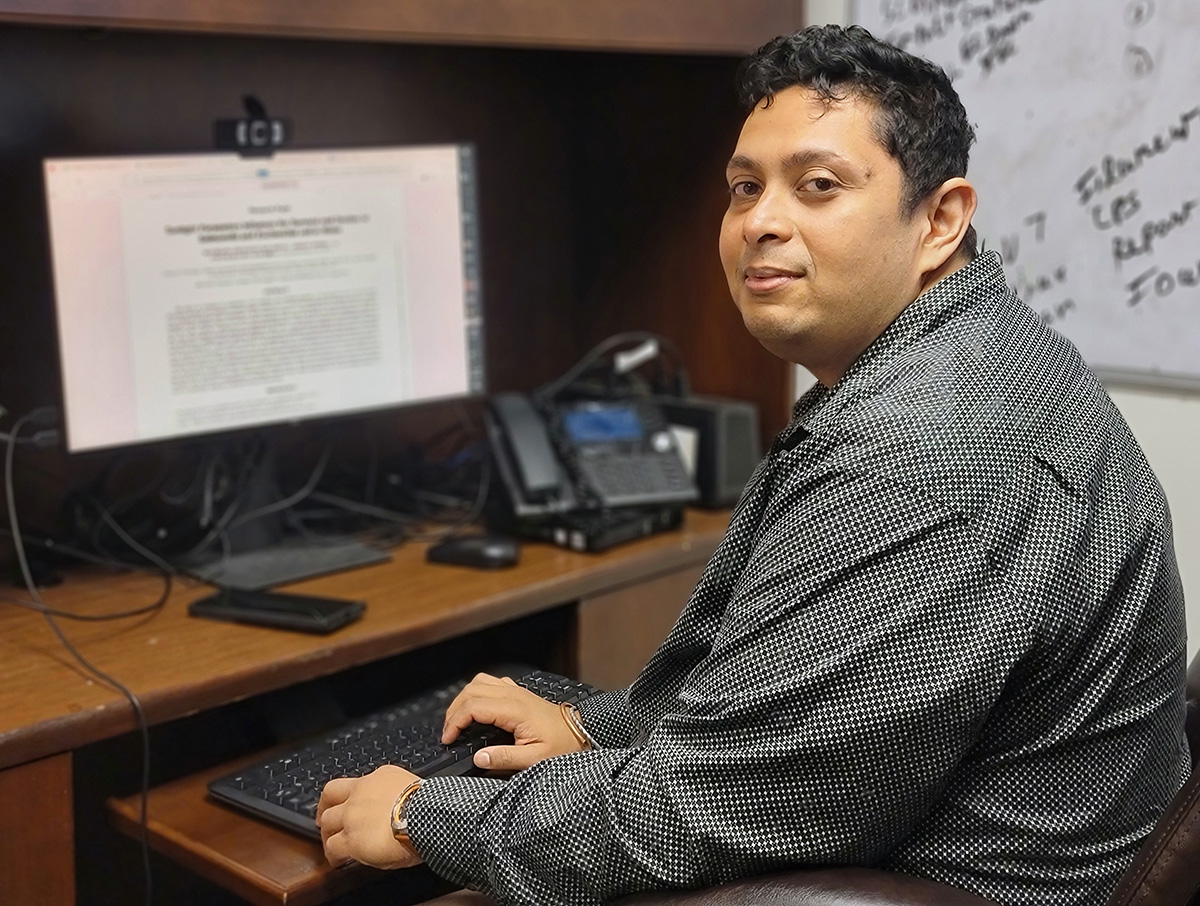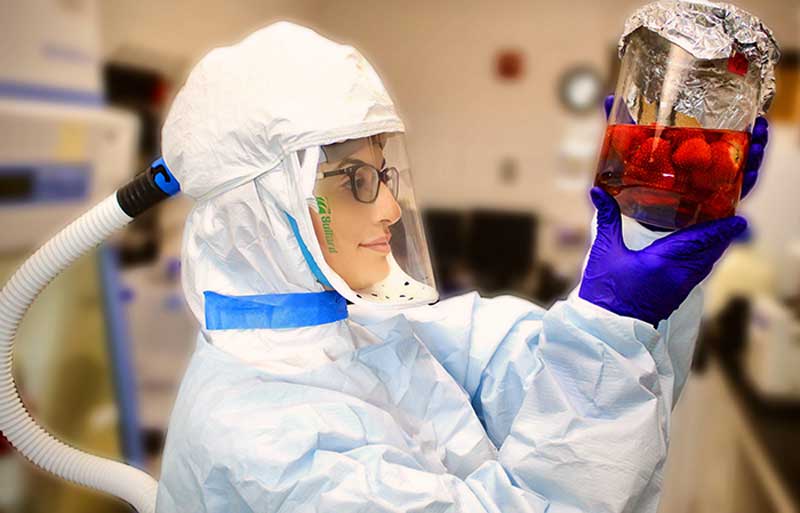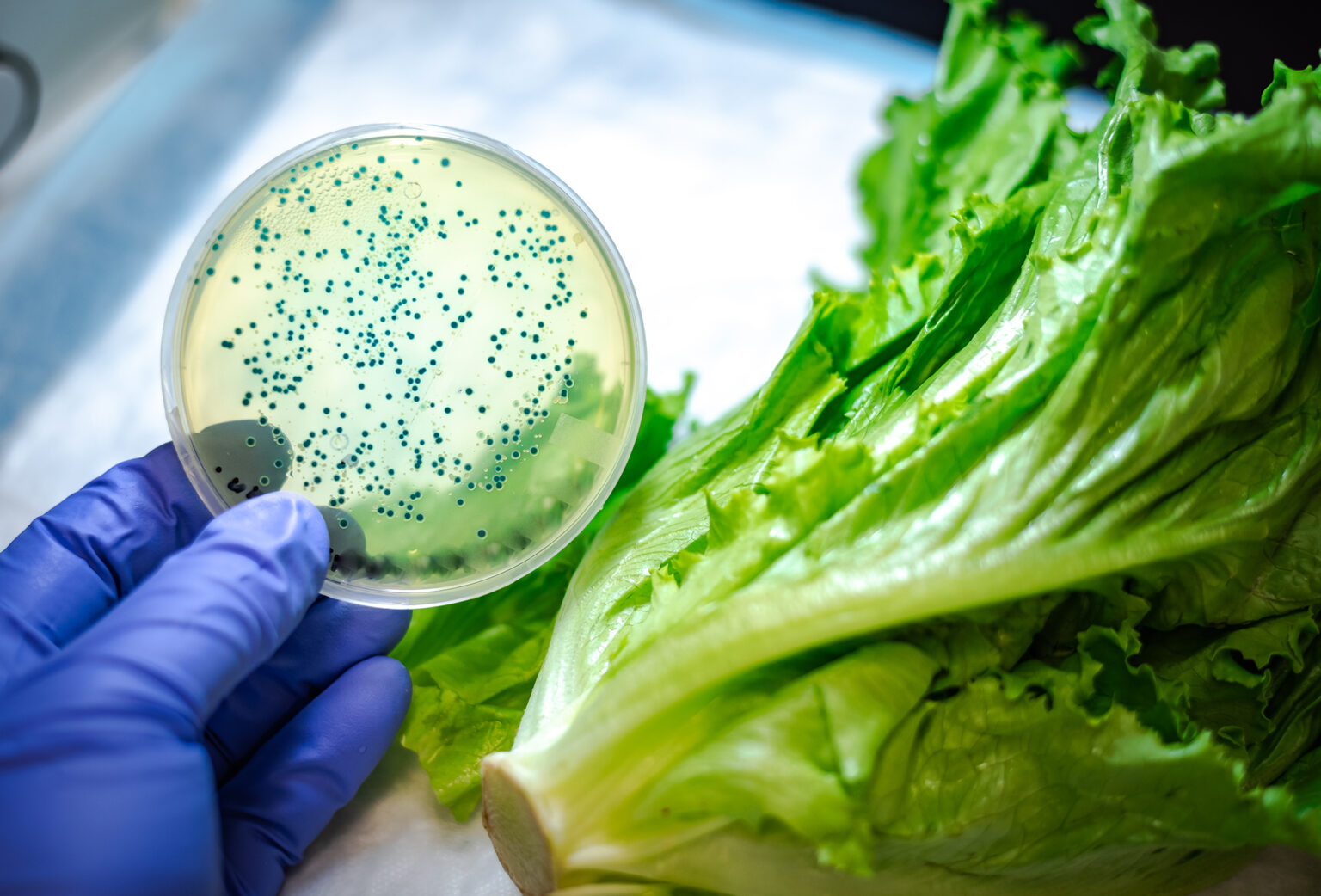-Cropped.jpg) CAES News
CAES News
Testing for Life
Zhihan Xian’s innovative research into new methods of food origin tracing has been named this year’s winner of the Testing for Life Student Award by AOAC International, a nonprofit association that seeks to set standards of analysis to help ensure food safety globally. Xian, a doctoral student in food science at the University of Georgia’s College of Agricultural and Environmental Sciences, is on the leading edge of research of food origin authentication.

.jpg)
